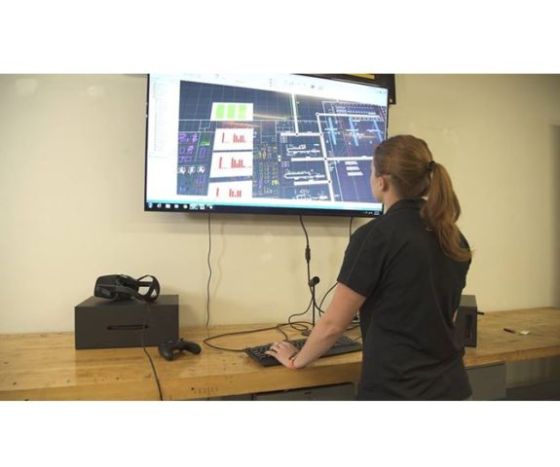
Stanley Black + Decker is to open an Advanced Manufacturing Centre of Excellence in downtown Hartford, Connecticut to accelerate its global Industry 4.0 "smart factory" initiative.
Called "Manufactory 4.0," named after the original Stanley Bolt Manufactory founded in 1843, the 23,000-square-foot Centre will employ approximately 50 Industry 4.0 professionals. Sudhi Bangalore, most recently WIPRO's Global Head of Smart Manufacturing and Industry 4.0 Solutions, has been appointed to lead the centre. Stanley is also launching an additive manufacturing accelerator with Techstars that will be housed at the new facility.
"Our Manufactory 4.0 will serve as the epicenter for the latest technologies and processes with respect to Industry 4.0," said Stanley Black & Decker CFO Don Allan. "Just as Connecticut was at the heart of the first three Industrial Revolutions and has continued to have a strong manufacturing presence, we believe that the state has the potential to be a leader for what is often called the Fourth Industrial Revolution – the automation of manufacturing that includes the internet of things, cloud computing, artificial intelligence, 3-D printing, robotics and advanced materials. We are thrilled that Sudhi has joined the company to lead this effort, which is a critical component of our company's 22/22 strategy."
Sudhi Bangalore will serve as Stanley Black & Decker's Vice President of Industry 4.0. Leveraging a unique combination of operations and technology background, he has served as an expert advisor to shape and deploy Industry 4.0 strategies for several global customers. Prior to serving in his current role at WIPRO, he was the company's Global Practice Head for Industrial Automation. He has held operations and business unit manager leadership roles across a number of leading technology companies, including Danaher Corporation, Siemens and Rockwell Automation. He earned a Bachelor's in Electronic Engineering from Bangalore University, a Master's in Industrial Engineering from the University of Louisville and an M.B.A. from Kent State University.
Industry 4.0 implementation
Stanley Black & Decker currently operates approximately 30 manufacturing facilities in the U.S., including three in Connecticut, with more than 100 manufacturing facilities globally. The company has three locations designated as "Lighthouse Factories," that have partially implemented Industry 4.0 across their facilities from manufacturing execution systems (MES), to 3-D printing, virtual reality and artificial intelligence.
In addition, to support and accelerate innovation in Industry 4.0, the company has made a three-year commitment to partnering with Techstars and is announcing the launch of the STANLEY+Techstars Additive Manufacturing Accelerator. The mentorship-driven, entrepreneurial accelerator program will identify 10 startups in the additive manufacturing space to participate in the program in the program's first year. Companies will co-locate with Manufactory 4.0 and have access to mentoring and resources to grow their ideas into viable businesses, and bring new technologies to market. Additive manufacturing refers to 3-D printing and the collection of technologies that are used throughout the process, including those involved in rapid prototyping, rapid manufacturing and free form fabrication, among others. The application process will begin in January 2018. Similar programs will be run in 2019 and 2020, with 30 potential startups completing the process.
"Additive manufacturing is a field that is constantly evolving and will significantly change the manufacturing environment of the future," said Corbin Walburger, Vice President of Business Development for Stanley Black & Decker. "The STANLEY+Techstars Additive Manufacturing Accelerator demonstrates our commitment to this emerging industry, and shows our intent to stay at the forefront of technological change and incorporate another example of innovative and disruptive technologies into our business model."



